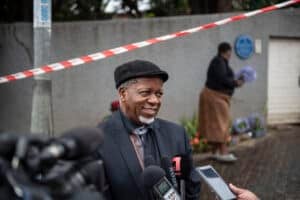Unless the NPA is completely separated from department of justice, it is bound to fail.

President Cyril Ramaphosa and national director of public prosecutions Shamila Batohi have more in common than the fact that the latter was appointed by the former and serves at his pleasure. Both are congenitally averse to conflict.
Both have underperformed desperately.
Last week, the Centre for Development and Enterprise (CDE), a think tank with a reputation for practicable policy recommendations, released a report on the need to energise the National Prosecuting Authority (NPA).
It’s part of identifying actions that the government of national unity must take urgently if it is to reverse 15 years of stagnation and decline.
It’s no secret that the NPA is a mess. Public confidence in the law and justice system is low and hopes that political corruption was a temporary phenomenon that would be corrected when Ramaphosa ousted Jacob Zuma have proved illusory.
ALSO READ: NPA vs justice department: Govt slams City Press, labels article ‘fake news’
Yet the NPA, which is the lynchpin between policing and punishment, continues to perform poorly.
“The slow and erratic prosecution of widely reported cases of corruption undermines democracy and encourages the [continued] misappropriation of state resources,” writes the CDE.
The result is a sense of impunity on the part of the criminals and among the citizenry “a pervasive sense of despair that the state cannot enforce the law”.
It’s also no surprise, as the report makes clear, that there is a range of contested reasons for the NPA’s lack of performance. Indeed, its major problems – political interference, inadequate budgets, internal sabotage, and poor staff competency – all precede Batohi.
However, it’s because of her poor leadership that none of these impediments has been addressed.
ALSO READ: Prosecutor facing corruption charges for alleged R70k kick-back
The first half of Batohi’s 10-year tenure has been characterised by a failure to execute its function of bringing to book the ANC-connected big fish who plundered SA to the tune of R1.6 trillion.
As CDE director Ann Bernstein points out: “Not one high-profile politician involved in state capture has been successfully prosecuted.”
The NPA has always been at the heart of state capture, as the report makes clear. There is a long history, stretching back to the Thabo Mbeki years, of interference in prosecutions. The NPA also lost its dedicated investigatory arm, the Scorpions, when this was closed down to protect the ANC elite from prosecution for state looting.
Such battles continue to this day. As I write, the NPA is in the throes of a bitter battle with the department of justice over unfettered access to the vast trove of documents in the Zondo commission into state capture’s archives.
It’s an unforgivable state of affairs, an example of both Batohi’s and Ramaphosa’s lack of appetite for a fight with Zuma-supporting elements at the highest level in the department.
ALSO READ: NPA’s uphill battle: Advocate Batohi addresses progress and setbacks (VIDEO)
As a legal expert put it to me, “You don’t need nice people at the top. You need a human Rottweiler.”
The CDE series of reports has kept coming back to the identification of the “mission-critical” public service jobs necessary to repair the damage.
“Let’s make sure that the very best people occupy them,” says Bernstein.
That’s not easily done, says Gareth Newham of the Institute for Strategic Studies.
While he supports the CDE’s call for a speedy inquiry into the reasons for the failed state of the NPA, he stresses that unless the NPA is completely separated from department, it is bound to fail.
“The NPA has to be fully independent, financially and administratively. It needs to negotiate its own budgets with the Treasury and hire and fire its own administrative and support staff.”
That’s all good and well, but the stumbling block of the Ramaphosa years has never been understanding what needs to be done. It’s having the political will to do it.






